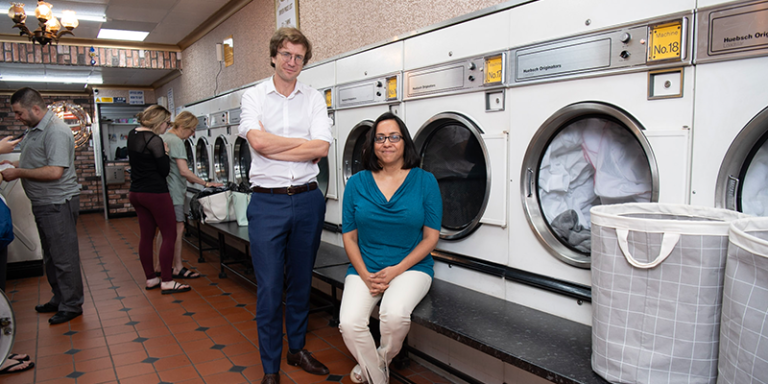Forging new tools for economic decision making
6 August 2023
How can we ensure economics is designing tools that answer the challenges facing communities today? We speak with a prominent UCL economist and a leading policy researcher from Citizen’s Advice.

This article originally appeared in the UCL Policy Lab Magazine.
The tools used by researchers, governments, and central banks to measure how economies are performing can often feel far removed from people’s everyday lives. Designed by a handful of experts, they can feel like they have little relevance to ordinary conversations about the cost of living, yet the ways in which they operate have a significant impact on the lives of us all.
No acronym has come to define this better than the Consumer Price Index (CPI), introduced by the Office for National Statistics (ONS) in the 1990s to provide a more accurate and internationally-comparable measure of inflation. The CPI focuses on measuring changes in the cost of a basket of goods and services, which changes each year as some items are added and others are removed.
Today, the UK CPI remains a vital economic indicator, influencing policy decisions, wage negotiations, and assessing the nation’s economic well-being. Yet Morgan Wild, Head of Policy at Citizens Advice, and Parama Chaudhury a Professor (Teaching) at the department of Economics, UCL, are worried that the way in which the UK measures inflation has a direct and often unfair impact on some of the poorest households
“A small number of statisticians have been making the case that for years that, we have underestimated inflation for poorer people. You wouldn’t notice the error in any given year. But over time, those mistakes add up,” Wild said.
Although it is well-known that inflation has an oversized impact on the poorest households, the idea that the very tool we use to calculate inflation disadvantages them as well can have enormous implications for policy design.
This is partly due to the changing nature of the problem CPI seeks to tackle. Today, it is mostly designed as a tool for central banks to shape monetary policy but it is widely employed to calculate the rates at which benefits are paid and other key policy decisions are shaped.
Wild argues that this is key to understanding why CPI is not working and says it speaks to a broader challenge – how can we ensure the tools economists use match people’s economic reality?
Researchers at UCL regularly grapple with precisely these kinds of questions. They are not just questioning how we understand economics, but how we teach it.
“Traditionally, undergraduate economics has been taught in a very abstract kind of way, partly because it’s easier to teach complex ideas in those kinds of ways,” Chaudhury said. “But this risks equipping us with tools that remain abstract to the real concerns people face.”
The Curriculum Open-Access Resources in Economics Project (CORE Econ), established by UCL’s Wendy Carlin, along with others, has sought to break down these barriers for over a decade.
It directly relates to the kinds of new approach to economics called for by civil society campaigners and researchers like Wild. Both seek to shake up our assumptions when it comes to how we solve knotty economic problems—honing tools to improve policymaking.
For Wild, it is not about rejecting the established economics tools that we have, but adding to them. Returning to inflation, he said: “We know the central banks require a reliable and effective measure for setting rates. But that does not prohibit you from using other tools when measuring inflation for designing welfare policies.”
Without this effort, some of the most vulnerable in our society might be paying the price, but Chaudhury and Wild are optimistic about their ability to shift the debate, with the efforts of researchers both within academia and outside working together to create the most effective tools for economic decision-making.
That is what drives Wild’s efforts to bring economic experts into dialogue with those fighting poverty on the front line, with Chaudhury saying: “I think within academia and especially within economics, there is a risk we miss issues due to the lack of diversity in the field itself.”
This is reflected further in her work as Pro-Vice Provost Education (Student Academic Experience) to ensure students from a wide range of backgrounds are getting the most from UCL while also bringing their experiences and perspectives to the kinds of questions raised by Wild.
Economics is inevitably a complex and technical subject that often deploys a well-established set of well-evidenced approaches. But as both Wild and Chaudhury make clear, that does not mean that economic thinking never needs to evolve and to make sure it responds to the acute challenges faced by people in societies today requires collaboration across disciplines, institutions and experience.
The new tools that come from that kind of melding of minds and experience could have a profound effect on communities in the UK and around the world.
Find out more about Morgan Wild's research on CPI 'For the poorest, the cost-of-living crisis is worse than it officially looks'.
 Close
Close

